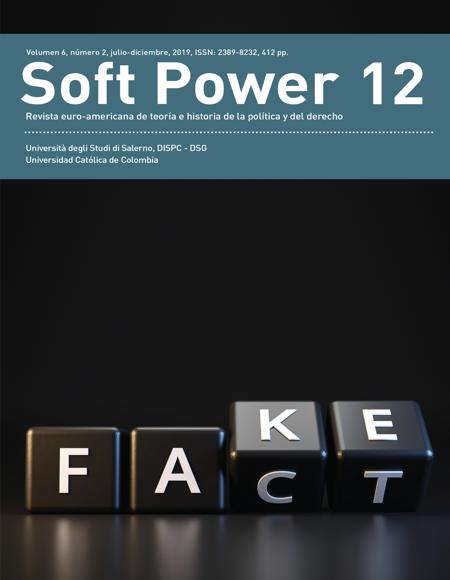Resumo
Moving from a critical reading of Hannah Arendt’s view of the relationship between truth and politics, this essay reframes the relationship between post-truth and politics within contemporary democracies, where a) truth acquires the same status of radical immanence as neoliberal governmentality and the same status of equivalence and exchangeability as commodities and the market, b) the imperative of transparency redefines the public sphere, c) the theatre of representation transforms into the set of presentification, without any border between the visible and the invisible, the sayable and the unsayable. Within such a framework the parresiastic practice of saying one’s own truth must be reconsidered, alongside and beyond the foucauldian proposal, as a relational and political practice rather than an individual and ethical style of life.

Referências
Arendt, H. (2007). “Truth and Politics”, in Eadem, Between Past and Future. USA: Penguin Classics.
Bazzicalupo, L. (2012). “La rappresentazione politica dopo la sua decostruzione”, in M. Baldassari & D. Melegari, Populismo e democrazia radicale. Verona: Ombrecorte.
Dardot, P & Laval, Ch. (2013). The New Way of the World. On Neoliberal Society, London: Verso.
Debord, G. (2014). The Society of the Spectacle. Paris: Éditions Buchet-Chastel.
Debord, G. (1998). Comments on the Society of Spectacle, London: Verso.
De Carolis, M. (2017). Il rovescio della libertà. Tramonto del neoliberalismo e disagio della civiltà. Roma: Quodlibet.
Dominijanni, I. (2014). Il Trucco. Sessualità e politica nella fine di Berlusconi. Roma: Ediesse.
Dominijanni, I. (2017). “Fare e disfare il popolo. Un’ipotesi sul caso italiano”, in Teoria politica, VII, 87 – 109.
Foucault, M. (2008). The Birth of Biopolitics. Lectures at the Collège del France 1978-79. New York: Palgrave Macmillan.
Foucault, M. (2009). Discourse and Truth. The Problematization of Parrhesia (H.P. Fuchard and D. Lorenzini eds.). Chicago and London: Chicago Univ. Press.
Foucault, M. (2011). The Courage of the Truth (The Government of Self and Others II). Lectures at the Collège de France 1983-84. New York: Palgrave Macmillan.
Han, B. C. (2015). The Transparency Society, Stanford: Stanford Univ. Press.
La Torre, M. (2011). “La ‘patria delle ombre’. Diritto e politica nella società dello spettacolo”, in Materiali per una storia della cultura giuridica, XLI (1), 163-186.
Melmann, Ch. (2005). (Entretien avec J. P. Lebrun), L’homme sans gravité, Paris: Gallimard.
Mishra, P. (2017). Age of Anger. A History of the Present. London: Penguin.
Nietzsche, F. (2012). The Genealogy of Morals, New York: Dover Publications.
Pulcini, E. (2001). L’individuo senza passioni. Torino: Bollati Boringhieri.










